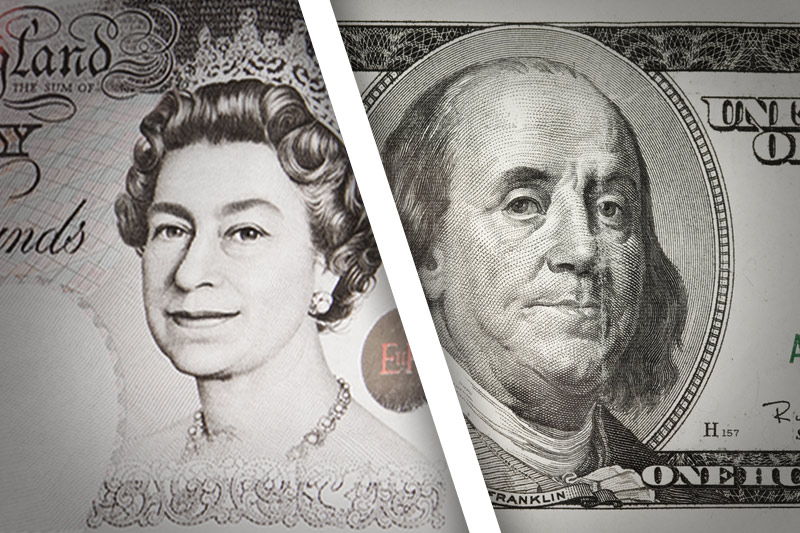Investing.com - The pound moved higher against the dollar on Monday after a U.S. consumer sentiment barometer came in just shy of expectations and sparked a modest dollar selloff, wiping out gains sustained in wake of the Federal Reserve's decision to taper stimulus programs.
In U.S. trading on Monday, GBP/USD was trading at 1.6352, up 0.14%, up from a session low of 1.6324 and off from a high of 1.6375.
Cable was likely to find support at 1.6316, Friday's low, and resistance at 1.6485, Wednesday's high.
The Thomson Reuters/University of Michigan's overall consumer sentiment index held at 82.5 in December, unchanged from an initial estimate, though analysts were hoping for the index to climb to 83.0, and the reading weakened the dollar, especially on a day of rising U.S. stock prices, which further diminished the dollar's appeal.
The Michigan consumer sentiment index stood at 75.1 in November.
Elsewhere, the Bureau of Economic Analysis reported that U.S. personal spending rose 0.5% last month, in line with consensus forecasts. Personal spending for October was revised up to a 0.4% gain from a previously reported increase of 0.3%.
The report also showed personal income rose 0.2% in November, missing expectations for a 0.5% increase, after falling by 0.1% in October.
While the day's data allowed for a moderate dollar selloff early Monday, the greenback enjoyed some support from the Fed's decision to begin scaling down its bond-buying in January.
Fed bond purchases aim to spur recovery by pushing down long-term interest rates, weakening the dollar in the process.
The U.S. central bank reiterated that interest rates are likely to remain low even after the unemployment rate drops below 6.5%, the threshold at which the Fed has previously said it would start to consider tightening policy.
The pound, meanwhile, was down against the euro and up against the yen, with EUR/GBP up 0.08% at 0.8378 and GBP/JPY up 0.08% at 170.11.
On Tuesday, the U.S. is to release data on durable goods orders as well as new home sales.
In U.S. trading on Monday, GBP/USD was trading at 1.6352, up 0.14%, up from a session low of 1.6324 and off from a high of 1.6375.
Cable was likely to find support at 1.6316, Friday's low, and resistance at 1.6485, Wednesday's high.
The Thomson Reuters/University of Michigan's overall consumer sentiment index held at 82.5 in December, unchanged from an initial estimate, though analysts were hoping for the index to climb to 83.0, and the reading weakened the dollar, especially on a day of rising U.S. stock prices, which further diminished the dollar's appeal.
The Michigan consumer sentiment index stood at 75.1 in November.
Elsewhere, the Bureau of Economic Analysis reported that U.S. personal spending rose 0.5% last month, in line with consensus forecasts. Personal spending for October was revised up to a 0.4% gain from a previously reported increase of 0.3%.
The report also showed personal income rose 0.2% in November, missing expectations for a 0.5% increase, after falling by 0.1% in October.
While the day's data allowed for a moderate dollar selloff early Monday, the greenback enjoyed some support from the Fed's decision to begin scaling down its bond-buying in January.
Fed bond purchases aim to spur recovery by pushing down long-term interest rates, weakening the dollar in the process.
The U.S. central bank reiterated that interest rates are likely to remain low even after the unemployment rate drops below 6.5%, the threshold at which the Fed has previously said it would start to consider tightening policy.
The pound, meanwhile, was down against the euro and up against the yen, with EUR/GBP up 0.08% at 0.8378 and GBP/JPY up 0.08% at 170.11.
On Tuesday, the U.S. is to release data on durable goods orders as well as new home sales.
